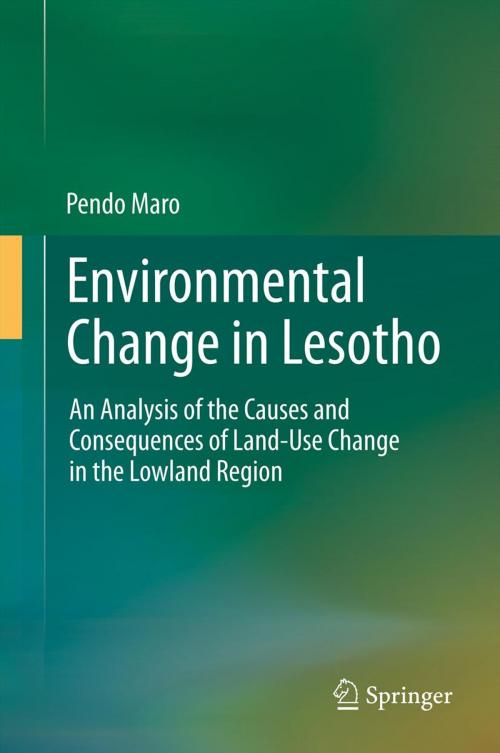Environmental Change in Lesotho
An Analysis of the Causes and Consequences of Land-Use Change in the Lowland Region
Nonfiction, Science & Nature, Technology, Environmental, Social & Cultural Studies, Social Science, Human Geography, Nature| Author: | Pendo Maro | ISBN: | 9789400718814 |
| Publisher: | Springer Netherlands | Publication: | August 20, 2011 |
| Imprint: | Springer | Language: | English |
| Author: | Pendo Maro |
| ISBN: | 9789400718814 |
| Publisher: | Springer Netherlands |
| Publication: | August 20, 2011 |
| Imprint: | Springer |
| Language: | English |
Environmental Change in Lesotho identifies and analyzes the drivers of land-use change and the consequences of these changes on the livelihoods of rural land-users/managers. To accomplish this, a combination of tools from the social sciences and environmental fields were developed to identify causes and consequences of land-use change at selected levels, using a ‘nested’ approach. These methods were then applied to a case study of two villages in the Lowland region of Lesotho. This book is directed at environmental and social science experts, researchers, decision-makers, and development/aid workers interested in understanding the intricate human-environment relationship as it relates to land-use change in a changing biophysical, socio-economic, political and institutional context, coupled by HIV/AIDS, changing demographics, local perceptions and what is termed here ‘dependency syndrome’.
Environmental Change in Lesotho identifies and analyzes the drivers of land-use change and the consequences of these changes on the livelihoods of rural land-users/managers. To accomplish this, a combination of tools from the social sciences and environmental fields were developed to identify causes and consequences of land-use change at selected levels, using a ‘nested’ approach. These methods were then applied to a case study of two villages in the Lowland region of Lesotho. This book is directed at environmental and social science experts, researchers, decision-makers, and development/aid workers interested in understanding the intricate human-environment relationship as it relates to land-use change in a changing biophysical, socio-economic, political and institutional context, coupled by HIV/AIDS, changing demographics, local perceptions and what is termed here ‘dependency syndrome’.















